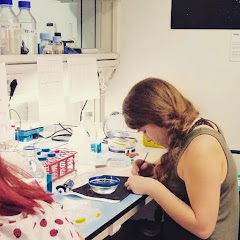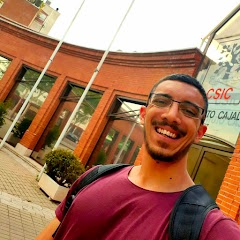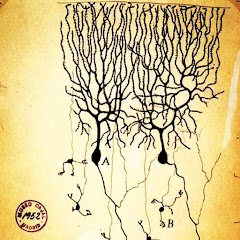Se ofrecen dos contratos postdoctorales en el Instituto Cajal-CSIC (Madrid) para investigar sobre las bases moleculares y aplicaciones de los orgánulos sin membrana y las proteínas amiloides, campo actualmente en auge y que está revolucionando la biología celular. Los contratos tendrán una duración de 2 años para trabajar en un proyecto europeo FET Open (PathoGelTrap: “New Blue Revolution through a pioneering pathogen-trapping technology based on bioselective hydrogel-forming proteins”). Los candidatos seleccionados se integrarán en un ambiente de trabajo estimulante y en un momento muy productivo del laboratorio. Incorporación inmediata.
 |
| Los contratos tendrán una duración de 2 años para trabajar en el proyecto europeo FET Open "PathoGelTrap". |
Requisitos
Doctor en Ciencias (Bioquímica, Biología, Biotecnología o Química). Buscamos un candidato competitivo y muy motivado que quiera continuar su carrera científica y que posea publicaciones de alto impacto en revistas científicas internaciones de referencia. Se requiere amplia experiencia en biología molecular, ingeniería de proteínas y bioquímica, y en particular en la identificación, estructura y actividad de proteínas formadoras de orgánulos sin membrana (condensados biomoleculares que experimentan transición de fases: liquid-liquid phase separation, LLPS y liquid-to-solid phase separation, LSPS) y proteínas amiloides (funcionales y patológicas). Se valorará especialmente la experiencia en el trabajo con hidrogeles.
Nuestro laboratorio está interesado en entender los mecanismos moleculares subyacentes a la función de las proteínas y en sus aplicaciones biomédicas y biotecnológicas
Nuestro laboratorio está interesado en entender los mecanismos moleculares subyacentes a la función de las proteínas y en sus aplicaciones biomédicas y biotecnológicas
El Laboratorio de 'Bases Moleculares de la Memoria y la Neurodegeneración'
Nuestro laboratorio se encuentra ubicado en el Instituto Cajal-CSIC, una institución pionera y líder del CSIC localizada en el centro de Madrid. Estamos interesados en entender los mecanismos moleculares subyacentes a la función de las proteínas y en sus aplicaciones biomédicas y biotecnológicas. Nuestro enfoque posee una fuerte componente multidisciplinar que combina la microscopía de fuerza atómica con la ingeniería de proteínas, la biología estructural, la dinámica molecular, la biología celular y la experimentación animal para comprender la función y el mecanismo de acción de las proteínas, con un énfasis especial en las proteínas intrínsicamente desordenadas que forman orgánulos sin membrana y amiloides.
Nuestras líneas de investigación actuales se enmarcan fundamentalmente en la biomedicina y están dirigidas a comprender el mecanismo de acción y regulación de amiloides funcionales como el CPEB (prionoide formador de biocondensados y amiloides, que controla la consolidación de la memoria) y las proteínas neurotóxicas (implicadas en enfermedades neurodegenerativas como Alzheimer o Parkinson). En paralelo, también trabajamos en el campo de la biotecnología para el desarrollo de aplicaciones biológicas mediante ingeniería de proteínas como la producción y optimización de celulosomas para el desarrollo de biocombustibles y, actualmente, en el desarrollo de un sistema de captura de patógenos para el campo de la acuicultura.
El campo: proteínas formadoras de orgánulos sin membrana y amiloides
La formación de amiloides (tanto funcionales como patológicos) y de orgánulos sin membrana son dos de las propiedades más fascinantes de las proteínas. Las proteínas intrínsecamente desordenadas (como la familia CPEB y la mayoría de las proteínas neurotóxicas) suelen contener regiones de baja complejidad (LCRs) que aportan la capacidad de experimentar transiciones de fase. Este mecanismo regulador permite cambiar el estado en el que se encuentra la proteína (soluble > liquid droplet > hidrogel) en función de las condiciones del medio y es utilizado por ciertos amiloides funcionales, los cuales planeamos aplicar biotecnológicamente al desarrollo de nuevos sistemas de andamiaje biológico. Específicamente, los objetivos principales de los contratos se basan en el clonaje, la producción y el análisis de proteínas capaces de formar liquid droplets (LLPS) e hidrogeles (LSPS) para generar un sistema reciclable de captura de patógenos aplicable al campo de la acuicultura. El conocimiento derivado de estas investigaciones también se aplicará a otras proteínas y amiloides funcionales de interés en el laboratorio.
Envío de solicitudes
Pueden dirigir sus solicitudes (CV, carta de presentación y cartas de referencia) hasta el 30 de septiembre de 2021 al Dr. Mariano Carrión Vázquez (mcarrion@cajal.csic.es).
Dpto. de Neurobiología Molecular, Celular y del Desarrollo, Instituto Cajal-CSIC. Avda. Doctor Arce 37, 28002 Madrid.
Páginas web:
Descargar el documento de la convocatoria en PDF: Contrato postdoctoral - Proteínas formadoras de orgánulos sin membrana y amiloides














